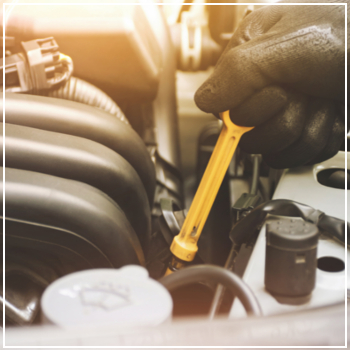Understanding the Fluids Your Car Needs
 Car owners are encouraged to regularly check the essential fluids that keep their vehicles running smoothly. Neglecting routine maintenance, like delaying oil changes or using low-quality coolant, can significantly affect your car's performance. From engine efficiency to braking and steering responsiveness, these fluids play a critical role in maintaining optimal driving conditions.
Car owners are encouraged to regularly check the essential fluids that keep their vehicles running smoothly. Neglecting routine maintenance, like delaying oil changes or using low-quality coolant, can significantly affect your car's performance. From engine efficiency to braking and steering responsiveness, these fluids play a critical role in maintaining optimal driving conditions.
However, research suggests that approximately one-quarter of all vehicles on the road require at least one fluid replacement or refill. To help you better understand the importance of these fluids and how to check them at home, here’s a breakdown of what your vehicle relies on:
Engine Oil
This fluid is vital for reducing friction between engine components, ensuring they work harmoniously without excessive wear. Without enough engine oil, metal-on-metal contact can lead to costly damage.
Experts recommend scheduling oil changes every 3,000 to 5,000 miles, depending on your vehicle's make and model. If you decide to check the oil levels yourself, make sure the car is parked on a flat surface and the engine is cold. The dipstick is usually located near the front or rear of the engine block.
To check the oil level and quality, first remove the dipstick, clean it with a paper towel, then reinsert it and pull it out again. The dipstick will show whether the oil is near the "full" or "add" markers. Fresh engine oil typically appears yellow or amber; any darker hues, sludge-like textures, or odd smells could mean it’s time for an oil change.
Transmission Fluid
Your car's transmission system transfers engine power to the wheels, making smooth gear shifts possible. Transmission fluid is essential for this process. Signs of low transmission fluid include difficulty shifting gears or a jerky driving experience.
Unlike engine oil, transmission fluid doesn't need frequent changes. Modern vehicles often require a transmission fluid change every 60,000 to 100,000 miles. However, it’s still important to periodically check the fluid’s condition. Fresh transmission fluid is usually clear and reddish, while older fluid may turn brown and show signs of debris.
Coolant or Antifreeze
Coolant (or antifreeze) keeps your engine operating within a safe temperature range, preventing both overheating in summer and freezing in winter. It also protects against corrosion inside the cooling system.
Typically, you should top off the coolant every 50,000 miles. In the meantime, regularly inspect the fluid for cloudiness or discoloration, as well as leaks. Contrary to some advice, avoid using plain water as a substitute—it lacks the additives needed to prevent rust and freezing.
Brake Fluid
Just like the transmission, the braking system has its own dedicated fluid. When you press the brake pedal, hydraulic pressure pushes the brake fluid through the lines to engage the brake pads. As your brake pads wear down, the brake fluid level decreases. Once the pads reach their minimum thickness, it’s time to replace them and replenish the brake fluid.
Changing brake fluid can be tricky because introducing moisture or contaminants can compromise performance. For best results, leave this task to professionals who have the tools and expertise to do it right.
Power Steering Fluid
Power steering fluid eases the effort required to steer your vehicle. If the fluid level drops too low, turning the wheel becomes more challenging and requires extra muscle. Regularly checking and refilling this fluid ensures smoother handling.
Windshield Washer Fluid
Washer fluid enhances the effectiveness of your windshield wipers, especially during rainy or snowy conditions. Make sure to keep the reservoir filled, particularly if you live in areas with heavy precipitation or dust accumulation.
Other Essential Fluids
In addition to the above, your car depends on several other fluids:
- Differential Fluid: Often called gear oil, it lubricates the gears in the front and rear axles, supporting both the transmission and power steering functions.
- Refrigerant: Unlike coolant, refrigerant maintains the air conditioning system’s ability to provide cool air.
Skipping routine checks and maintenance for these fluids can lead to reduced performance, higher fuel consumption, and even engine failure. Such issues increase the likelihood of accidents. To schedule an oil change or arrange for a comprehensive fluid inspection, get in touch with our Naugatuck auto shop today.
Remember, staying on top of your vehicle’s maintenance needs isn’t just about extending its lifespan—it’s about ensuring your safety on the road. Neglecting these basics can cost you money and peace of mind down the line. So take the initiative, check those fluids, and keep your ride running smoothly!
Bubble Mailer Bags,Envelope Mailers,Bubble Mailers,Bubble Envelopes Mailers
Dongguan Pasike Packaging Co., Ltd. , https://www.dgpasike.com